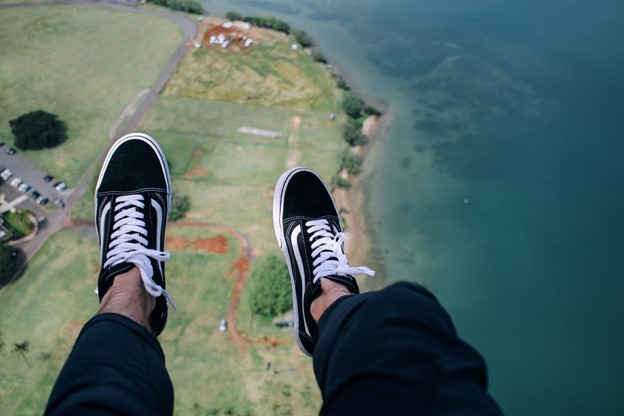In the fall of 2017, NFT projects like Cryptokitties took off like a rocket. I had the opportunity to have a lot of discussions about the crypto space, NFTs, and the emerging metaverse.
These conversations centered around how virtual land could become a viable alternative asset niche within cryptocurrency markets, and the metaverse. That’s when it clicked for me: humans have owned land for thousands of years all over the world, but now it’s being replicated digitally on computers around the world.
Virtual real estate will have its own set of economic principles just like physical real estate does, and Next Earth is leading the way in creating this new asset class. Next Earth was launched in August 2021 and has quickly become the metaverse’s largest virtual real estate platform based on a replica of Earth, with nearly $2M in the total value of land owned by users.
The importance of NFTs
In my view, NFTs are a continuation of our evolution from caves to cities to the blockchain – they’re just another tool for us to build our lives and connections digitally.
As we all know, technology is both a blessing and a curse, so I think we’ll have some growing pains as we figure out how to create safe spaces online while also allowing people to express themselves creatively and make money along the way. But if Next Earth is any indication, I think it will be very exciting times ahead for virtual real estate.
Buying virtual land NFTs on Next Earth
All that said, let’s look at the process of buying virtual land NFTs on Next Earth.
First, I just signed up at nextearth.io, with my email and password. Next Earth is the largest and most well-established of the current crop of metaverse real estate companies. I also joined a community of thousands of other landowners and NFT enthusiasts, through their Discord community here.
After creating my account, I created a Binance Chain address through the Binance Chain Chrome extension. If you don’t have a Binance Smart Chain address yet, it’s time to get one. Once you’ve generated an address, you need to send BNB (the BSC native token) to it in order to log into Next Earth and buy virtual land NFTs.
After connecting my wallet, I used the Next Earth map to find virtual real estate that I’d be interested in. Next Earth has a visual map where you can browse all available parcels of virtual land. You’ll also see the current ownership status for each parcel, as well as any bids placed by other users.
Beyond being able to browse the entire virtual replica of Earth, you can simply type in a location, like “White House,” and see if those tiles are available for sale. After connecting your wallet, you can purchase any available tiles. As you can see below, I decided to choose a nice mansion in Hollywood Hills.
Of course, you can also buy land from other users via the NFT marketplace. This is a newly active area of the Next Earth platform – people can buy and sell virtual real estate NFTs with each other. If the tile you’ve browsed was taken, you can head over to the NFT marketplace to see if it’s available for sale from the original buyer.
For example, you can buy Area 51, prime mall locations, wine tasting locations, and many more fascinating real estate plots through the marketplace.
From here, you can do one of two things: you can hold your NFT land and watch the prices increase over time, or you can let someone else put a bid on your virtual land. With Next Earth’s NFT marketplace, you can choose to either hold the item or re-sell it through the marketplace.
Ultimately, NFTs have steadily risen in popularity over time, but exploded recently in part due to the growing accessibility of blockchain technology and the rise of crypto-assets.
Consumers have plenty of options when it comes to buying NFTs. It used to be that buying virtual items was largely limited to popular online games (World of Warcraft, Minecraft, etc.). But now, there are plenty of non-game examples like Next Earth, where you can buy any virtual land as an NFT.
Photo by Colton Jones on Unsplash
